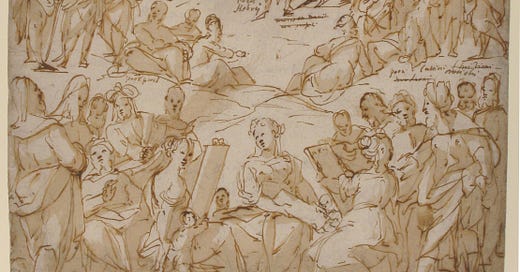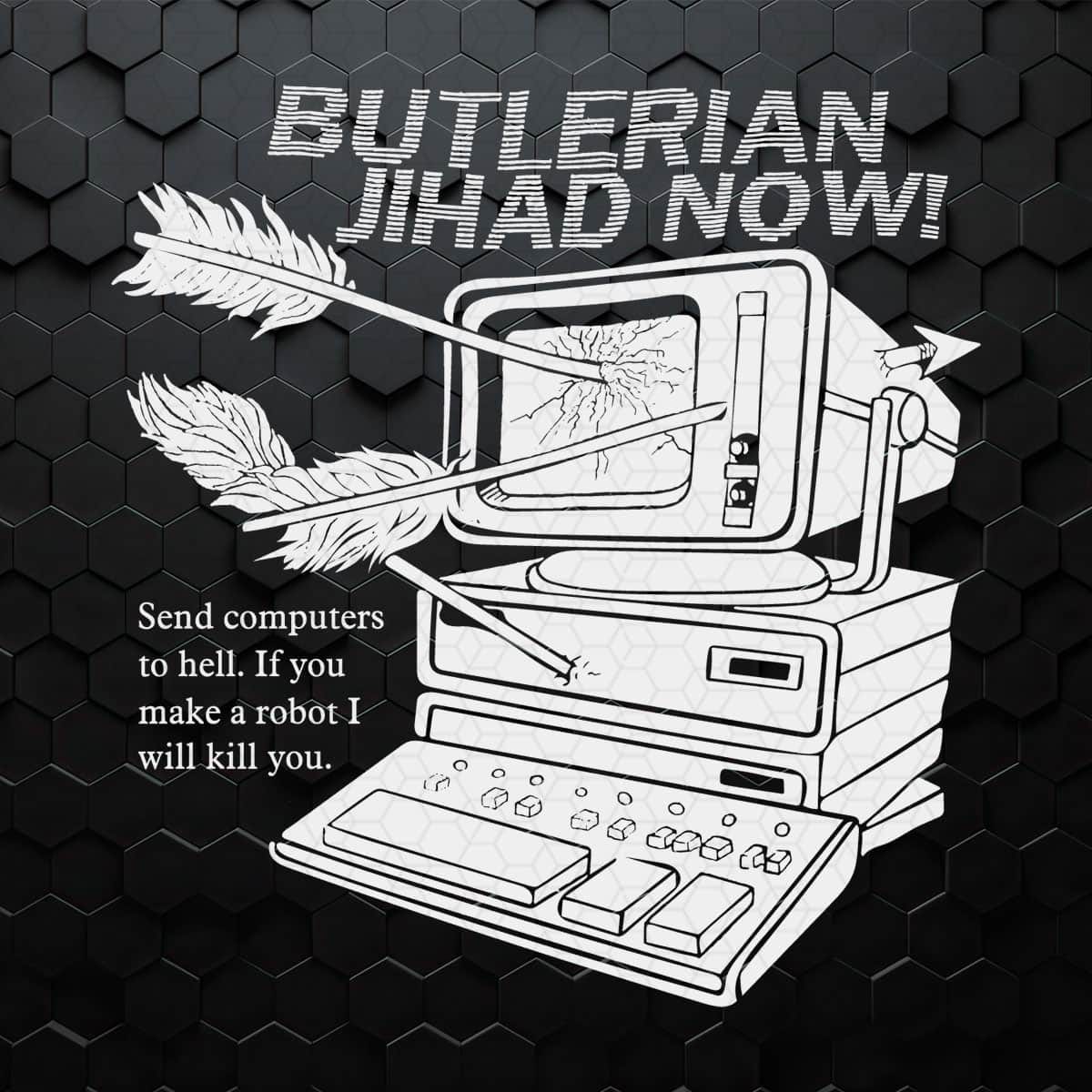We need the humanities more than ever
Something unites us all as we come together and read these books: an understanding that we need the humanities more than ever.
Apparently, Routledge and Taylor & Francis have told their editorial staff that they need to make sure their authors make their deadlines, as the publishers have promised a certain number of new books as training data for LLMs. Authors will face increased pressure to finish their books according to a prescribed schedule, not because of market demand for the books but because of market demand for training data. (I’ll note here that I have not confirmed this independently, so there is a chance I am wrong.)
This comes, of course, after earlier revelations about academic publishers and AI companies; as I wrote previously, academic publishers have licensed research articles to Microsoft to serve as training data, and academics cannot opt out. Now researchers will be encouraged (incentivized? forced?) to publish on a certain schedule to make sure these companies get enough data.
I have seen a spate of discussions about the furthering decline of student attention spans. The Chronicle of Higher Education, Slate, and even Teen Vogue have reported on the matters. Professors cannot get their students to read, and students increasingly use AI to summarize readings instead of actually attempting to do the readings themselves. Classes that used to assign 50 or 60 pages per week now assign 20 pages, and even then students struggle to do the reading.
And as I’ve written about before, institutions like Morehouse College are looking into how they can use AI to supplement classroom instruction. They want to have digital, AI teaching assistants; I don’t see why they should stop there! They could have AI professors, too. It would certainly be cheaper. Then the students could use AI to summarize their AI professor’s lectures and assigned readings, use AI to write the assigned essay, and the AI professor’s AI teaching assistant could grade the AI essay.
As I write this, one thought keeps bubbling up in my mind: I am grateful that I studied the humanities.
Maybe this will surprise you – or maybe not! – but I was a bad undergraduate student. I drank too much, and I read too little. I skipped class on a regular basis. I did graduate with honors, but just barely, and I just barely got into grad school. (This was one of the factors that led me to transfer to a different program a few years later — I found my real interests, was much more dedicated, and wanted to go elsewhere.) I can understand why undergraduates may not want to do the reading — there are so many other, more entertaining things you can do with your time.
Somehow, though, I managed to be exposed to a great many ideas and authors. I discovered the joys of Plato, Marlowe, James, and Nietzsche; I was introduced to the thrills of formal logic (I mean this sincerely; it is thrilling!); I found a home in the world of analytic philosophy, where precision and clarity mattered above all. My university education awakened something in me, despite my best efforts.
Then I went to graduate school, and this process continued. Just after transferring from Boston University to the University of Connecticut, I had a long phone call with my friend P. She asked me how I felt at my new school, and I said something like, “It is the strangest thing — I can feel myself getting smarter.” It was like my mind was coming alive.
It took me a long time to find the value in my humanities education, in part because I wasn’t giving it my all. Yet, it was having some effect on me. I was learning something, even if I could have learned more. All of that preparatory work made that great leap forward in graduate school possible. I think now I would say that it was making me more human.
Unfortunately, I fear that many students are not going to have the opportunity to study the humanities in the future. Many smaller colleges and universities continue to see enrollment decline, leading to layoffs. More and more faculty are being told that they are no longer needed, and a large proportion of those faculty are in the humanities. Given these trends, I fear there is a real possibility that within several decades, many university students in the United States will not be attending a school that has any substantive humanities offerings. That means they will not be able to study, e.g., languages, history, literature, and philosophy. If you add in the threat of AI, where many humanities courses appear to be automatable by AI, then it gets even more dire. Students will miss out on the opportunity to become more human through a humanistic education.
When I say ‘become more human,’ I really mean it along Aristotelian lines. I am talking about honing our abilities, the skills we all latently possess but that need to be developed. These are the virtues, Aristotle would say, and I am primarily thinking about the intellectual virtues, the virtues that allow us to make practical decisions and to engage in contemplation. Languages, literature, philosophy, but also math and the sciences, don’t just teach us; by studying them, we are refined.
This refinement does not come solely through the memorization of facts. It comes from being immersed in the subject matter, muddling through, trying and failing — it comes through an intellectual labor that requires attention. When we bring AI into the equation, what we are doing (it so often seems to me) is making it so that we don’t have to pay attention; the result is that all we are left with is a list of facts that we won’t even bother to memorize.
Announcing our future philosophical read-alongs
I have figured out the next few read-alongs we’ll be doing here at Commonplace Philosophy, and I’ll be sharing some details with you today.
If universities won’t offer a humanistic education anymore, we have to do it ourselves.
Starting next week, we’re reading Mrs Dalloway together. It is not a long novel, but it is also not an easy novel; Woolf can be challenging. We are reading about 40 pages per week. After we finish Mrs Dalloway, we’ll move on to Hannah Arendt. Then we’re reading Le Guin, Plato, Ishiguro, Chuang Tzu, and Aristotle. This is a humanistic enterprise. Together, we are practicing being good human beings; ideally, it will make us slightly better human beings.
I can promise you that there is no AI being used on my end; I assume this is true on your end as well. This is an all-human enterprise.
Substack is full of groups like this — people who want to read great books together spontaneously arrange themselves and get to work. I know my readers are quite diverse: we have readers from around the world, of many different faiths, nationalities, ethnicities, genders, and so on. We have students, and we have retired professors. But something unites us all as we come together and read these books: an understanding that we need the humanities more than ever.








Very nice piece and a rallying cry for the merit of the humanities. When you say, "If universities won’t offer a humanistic education anymore, we have to do it ourselves" I totally agree with you. I think the time for a punk, diy approach to the humanities is in order and looooong overdue. I think AI and it's pervasiveness in philosophy in particular is just the straw that broke the camel's back.
Well said! As I recently wrote in Stop Tweeting, Start Thinking (https://www.whitenoise.email/p/stop-tweeting-start-thinking):
"The staying power of the Liberal Arts lies not within dust-ridden libraries or highfalutin verbiage, but rather in its vivacious, multi-faceted interpretation of timeless ideas.
Take the below:
Hellenistic schools of thought
Christianity
The Renaissance
Rationalism
The Age of Enlightenment
Each of these watershed moments in time sought to answer the question of “what truly matters” with its own ideas, thoughts, and input.
In this way, the Liberal Arts are a prism that refract our common human experience into many different directions, ideas, and colors. Far from obfuscating, this intellectual prism elucidates and allows multifaceted interpretations to color intellectual history.
These colored analyses force one to grapple with ideas and theories to master the art form that is critical thinking. This practice fosters a mental rigor that stretches one’s intellectual limits and comprehension of what is true.